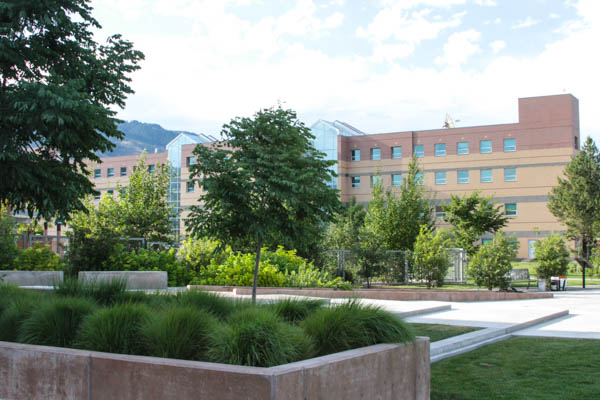School Counselor Training Aims to Send More Utahns to Higher Ed

Amid the droves of people going back to school are a number of high school counselors. Their ultimate objective: get even more high schoolers to obtain a degree.
Utah has the second-highest percentage of people with “some college, no degree,” at 28 percent, according to a 2015 report from the LuminaFoundation. A recent report from the William T. Grant Foundation found that people who went to college but didn’t complete a degree were no better off in the workplace than a high school graduate.
House Bill 198 provided $400,000 to pay for school counselors to enroll in a course in college and career readiness at either Utah State University or the University of Utah. The class provides counselors with evidence-based strategies to encourage their students to obtain degrees after high school. The legislation was in line withUtah’s Prosperity 2020 movement, which set the goal of 66 percent of working-age Utahans having a post-high school certificate or degree by 2020.
Degree attainment in Utah was at 41.6 percent among working-age adults in 2013, compared to a national average of 40 percent, according to the Lumina report. While Utah’s percentage is above average, the degree attainment for the Salt Lake metro area is lower than that of Madison, Wisconsin; Washington, D.C.; San Jose California and Denver, Colorado.
This fall, the first group of students to take the free course under HB 198 began the online course at USU.
Deborah Worley, a counselor at Carbon High School, took the class as part of a pilot program. It has already changed how she talks to students, she said. Many of the teens who enter her office are tired of going to school. “A lot of them will be like, ‘I want a year off after high school,’” she said.
The course gave her hard data she could use to talk them into pursuing a degree or certificate. (For example, the gap in wages for the average college graduate over the average high school graduate rose from 38 percent more in 1980 to 73 percent more in 2011.)
Bobbi Jones, a counselor at Adele Young Community High School in Box Elder county, said some students and families are so sure that college is out of reach for them, they don’t explore what supports are available to help them succeed. As a counselor in an alternative high school, she has changed the way she communicates with students and parents. The course gave her a lot of good ideas, she said.
For example, she knows an event called “College Night” is a non-starter. Instead, “How to Pay for College” or “How to Pay for Higher Education” is more likely to bring people in.
For more information on how to enroll in College and Career Readiness, contact Camille Odell, Director of USU’s School Counselor training program.

